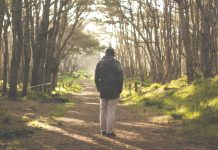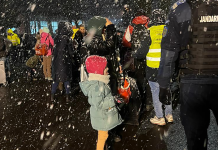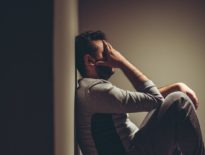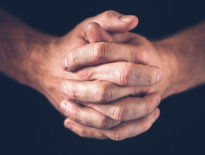Courage is not the opposite of fear, nor of caution. True courage is what you do right in the midst of fear.
A Romanian man from Spain, who had been tested and knew he was infected with the new coronavirus, disregarded the rules and boarded a plane packed with 60 other people because he wanted to get home. When he landed, he went straight into quarantine and, not a day later, the whole country had learned of the irresponsibility of the man who, in addition to illness, now has a criminal record.
Such news, alongside that of the senator who endangered the health of the country’s government employees, in addition to the stark images of empty shelves in big retail stores, creates a sad picture. Most of us can probably expand this picture with many other incidents from personal experience that prove how selfish or irresponsible we can be: maybe a shopper with a shopping cart full to the brim of the same item, maybe an elderly neighbour who seems to come out of the house these days more often than ever before and, let’s not forget, the flurry of false information spread for free, bundled with panic.
But the bleak picture of our worries and inappropriate reactions doesn’t tell the whole story of who we are in the midst of the new coronavirus pandemic. In order to be truly balanced, our perspective must also include those courageous and creative initiatives of people who could have limited their contribution to self-isolation alone, but chose to do more.
Dozens of kind-hearted people, professionals from a wide variety of fields, announced that they would donate services and money to prevent the pandemic from hitting the most vulnerable among us at the maximum intensity. Donors took the risk of giving money to a purpose greater than their own: to support those who could be completely taken out of the game this health crisis.
The recipients were either institutions (receiving equipment, sanitary ware, protective masks and money for hospitals; benefiting from management and marketing consultations for small companies and NGOs), or vulnerable people (those who are isolated or from disadvantaged environments, without access to hygiene products; people with mental health issues aggravated by the uncertainty of the moment; and entrepreneurs who risk losing their income due to the pandemic).
The practical gestures of these people reveal some very important things, not only now, in the midst of a pandemic, but also in quieter times.
We are not our most illogical reaction
Yes, we are sometimes illogical. Yes, we have strong instincts and impulses, which sometimes escape self-control. But we also have the ability to make counter-intuitive, deliberate and honourable decisions, which allude to a potential that we have not yet fully explored. And this is some of the best news that can be heard these days.
Courage does not mean not being afraid—it’s being dead scared, but doing the right thing anyway
Fear is a natural reaction to an unnatural situation. Also included in this naturalness of fear, is its characteristic of generating a response equal to the stimulus. Many of us have been frightened by the surrealism of a pandemic situation, and may have felt that the situation is desperate and therefore requires desperate measures, such as temporarily giving up caring for those around us and focusing on ourselves. But fear can also lead to responsible behaviours. These are the behaviours by which we demonstrate that, although we are afraid, we do not let fear destroy our humanity, nor the desire to do what is good.
Faith is never more powerful than in a troubled context
A crisis situation can cause us to wrap ourselves in a mental bubble in which it seems imperative to preserve any resource strictly for ourselves. However, the same situation can lead us not to conserve, but to invest the most valuable resources we have, right now, when it is most necessary for them to be used. Faith, for example, never manifests itself more strongly than in a troubled context. Of course, even in quiet times, we need to trust God, but in a crisis, trust in God can be a sure and inexhaustible source of peace of mind.
Once we trust that He cares, we free our mental resources and can invest them in controllable, not the inevitable uncontrollable things.
God will always be with us, a shelter for the soul, no matter what happens to us or around us. We do not preserve our values, but entrust them to the care of a loving God. Once we trust that He cares, we spare mental resources from being invested into all the inevitable uncontrollable things, and into the things we can really effect some change upon. Even though our circumstances constantly change, God never changes, and this can restore our spiritual balance when external support structures become unpredictable.
Alina Kartman is a senior editor at ST Network and Semnele timpului.



















